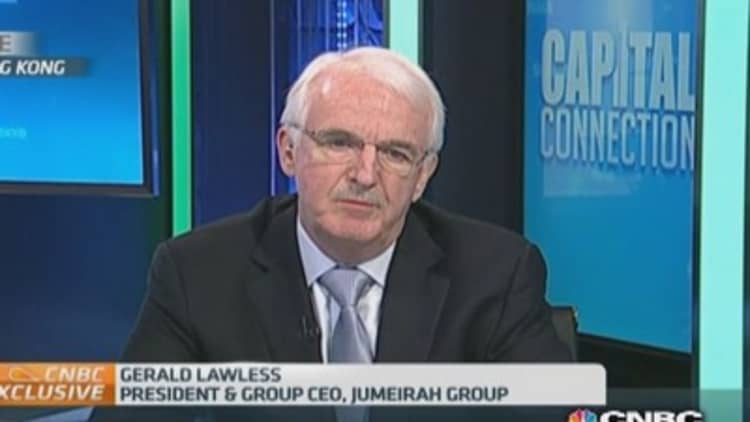Afghan farmers are growing an unprecedented amount of poppy—used for opium and heroin—despite more than $7 billion spent by the U.S. since 2001 fighting Afghanistan's poppy cultivation and developing a counter-narcotics program.
Last year, 209,000 hectares of poppy were produced, which exceeds the previous 2007 peak by 16,000 hectares, according to a report Tuesday from John Sopko, special inspector general for Afghanistan Reconstruction. (A hectare is nearly 2.5 acres.)
Afghanistan produced about 75 percent of the world's supply of heroin last year. The country is the world's largest grower of poppy. In 2013, opium-based products made in Afghanistan were valued at nearly $3 billion, a 50 percent increase from 2012, according to the report.
Poppy's resurgence in Afghanistan is due in part to affordable deep-well technology that has transformed 200,000 hectares of desert in the southwest into fertile land. Farmers are devoting this newly arable land for poppy farming because of high opium prices and the abundance of cheap, mobile labor.
Read More From brain diseases to pets, start-ups develop new cannabis cures
Provinces that were previously "poppy-free" are now seeing a rebound in poppy farming. For instance, the Nangarhar province, declared "poppy free" in 2008 by the United Nations Office on Drugs and Crime, saw a fourfold jump in poppy farming between 2012 and 2013.

"I strongly suggest that your departments consider the trends in opium cultivation and the effectiveness of past counternarcotics efforts when planning future initiatives," Sopko wrote in a letter to Secretary of State John Kerry and Secretary of Defense Chuck Hagel, among other U.S. leaders. "The recent record-high level of poppy cultivation calls into question the long-term effectiveness and sustainability of those prior efforts."
Numerous U.S. departments contributed to the $7.6 billion in funding, including the Pentagon's Afghan Security Forces Fund and the State Department's International Narcotics Control and Law Enforcement fund.
Watch More: Leno on Afghanistan
The failure to eradicate poppy is "due to the lack of Afghan government support for the effort," Michael Lumpkin, assistant secretary of Defense for Special Operations, wrote in a letter to Sopko.
"Poverty, corruption, the terrorism nexus to the narcotics trade, and access to alternative livelihood opportunities that provide an equal or greater profit than poppy production are all contributors to the Afghan drug problem," Lumpkin said.
"There is no silver bullet to eliminate drug cultivation or production in Afghanistan," Charles Randolph, a program coordinator at the U.S. Embassy in Kabul, wrote in a letter responding to the report.



